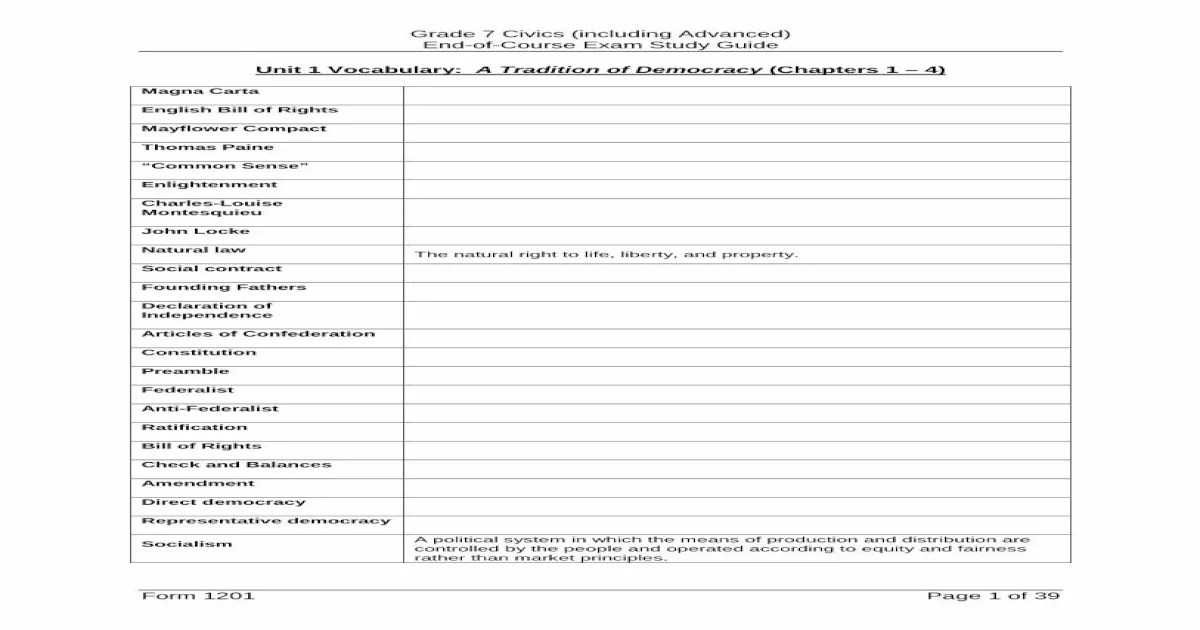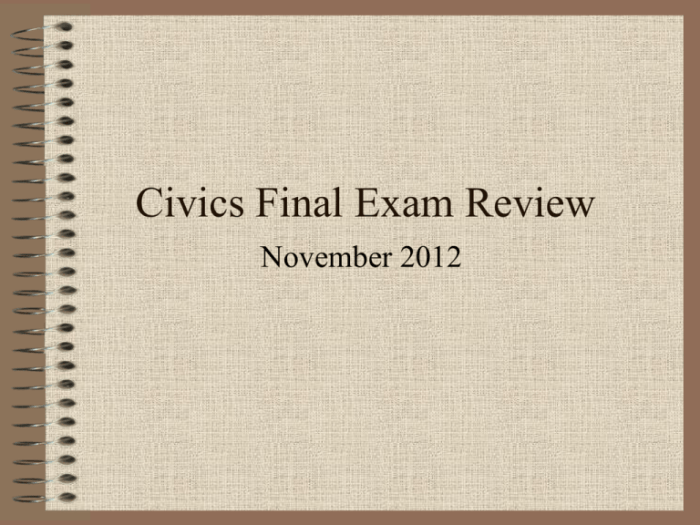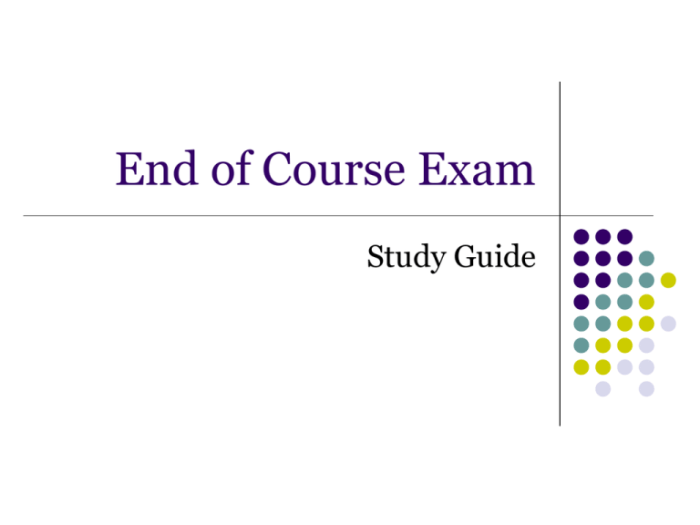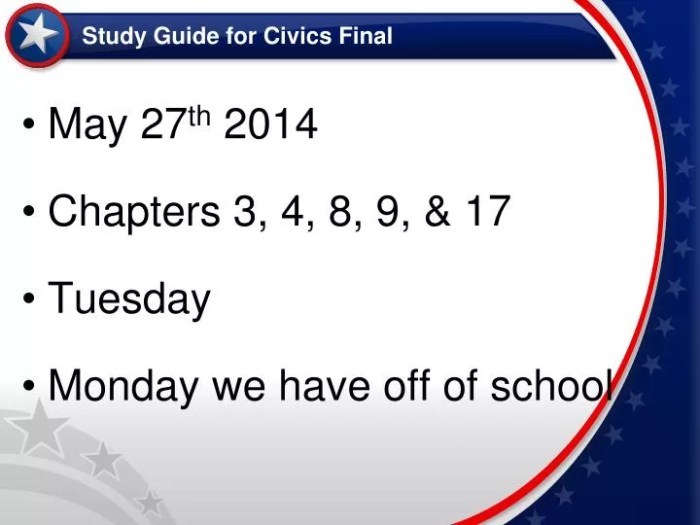Embark on a comprehensive journey through the Civics End of Course Exam Study Guide, a meticulously crafted resource that empowers students to excel in their civics exam. This guide provides an in-depth exploration of the exam’s format, content areas, and essential strategies for effective preparation, ensuring success for all who seek to master the intricacies of American government and civic engagement.
Delving into the foundational principles of American government, this guide illuminates the core concepts of democracy, federalism, and separation of powers. It unravels the intricate roles and responsibilities of the three branches of government, while also examining the profound impact of the Bill of Rights on American society.
By understanding these fundamental principles, students gain a solid foundation for comprehending the complexities of American politics.
1. Introduction to Civics End of Course Exam Study Guide

The civics end of course exam is a standardized test that assesses students’ knowledge of American government and civics. The exam is designed to measure students’ understanding of the foundational principles of American democracy, their ability to analyze current political issues, and their preparedness for active civic participation.
The exam covers a wide range of topics, including the structure and function of the federal government, the Bill of Rights, political participation, and current events. Students who perform well on the civics end of course exam demonstrate a strong understanding of the American political system and are well-prepared to participate in the civic life of their communities.
Foundational Principles of American Government
The foundational principles of American government include democracy, federalism, and separation of powers. Democracy is a system of government in which all or most citizens have the right to participate in the decision-making process. Federalism is a system of government in which power is divided between a central government and several regional governments.
Separation of powers is a system of government in which the powers of government are divided among different branches, such as the executive, legislative, and judicial branches.
Political Participation and Civic Engagement, Civics end of course exam study guide
Political participation is the process by which citizens participate in the political process. This can include voting, running for office, lobbying, and protesting. Civic engagement is the process by which citizens work to improve their communities. This can include volunteering, donating to charities, and attending community meetings.
Current Issues in American Politics
Current issues in American politics include the economy, healthcare, education, and the environment. These issues are complex and there is no easy solution to any of them. However, it is important for citizens to be informed about these issues and to participate in the political process in order to make their voices heard.
Preparing for the Civics End of Course Exam
There are a number of things that students can do to prepare for the civics end of course exam. These include studying the course material, taking practice tests, and getting a good night’s sleep before the exam. By following these tips, students can increase their chances of success on the exam.
Question & Answer Hub
What is the purpose of the Civics End of Course Exam?
The Civics End of Course Exam is designed to assess students’ understanding of the foundational principles of American government, political participation, and current issues in American politics.
What content areas are covered on the exam?
The exam covers a wide range of content areas, including the principles of democracy, federalism, separation of powers, the Bill of Rights, political participation, civic engagement, and current issues in American politics.
How can I effectively prepare for the exam?
Effective preparation involves understanding the exam format, prioritizing content areas, utilizing study strategies, and practicing with sample questions.
Where can I find additional resources to support my exam preparation?
Numerous resources are available online, including practice tests, study guides, and online forums where students can connect with peers and educators.


